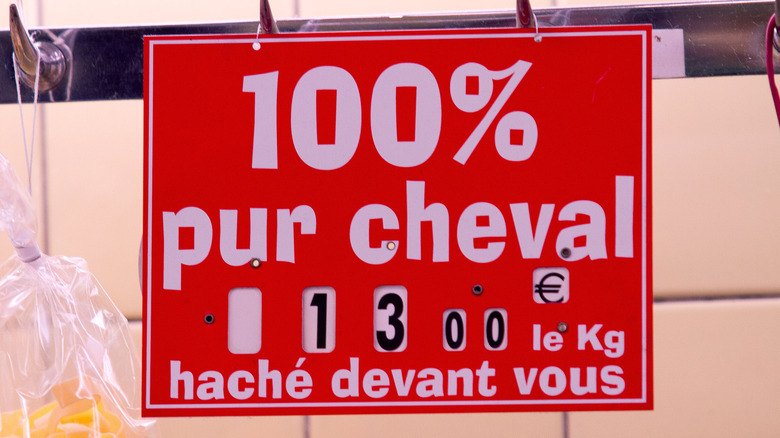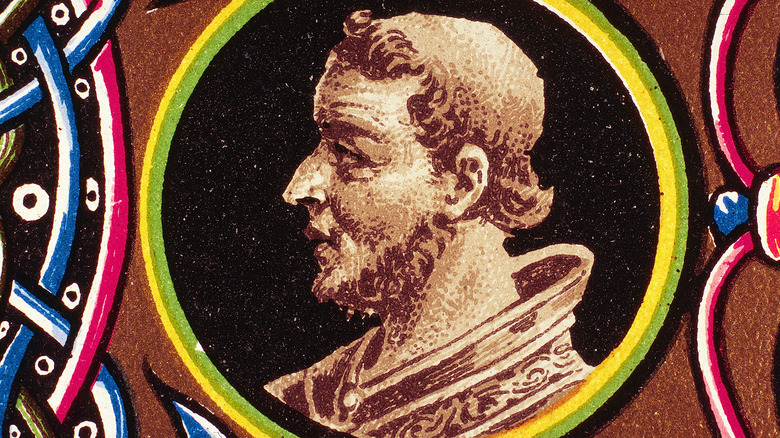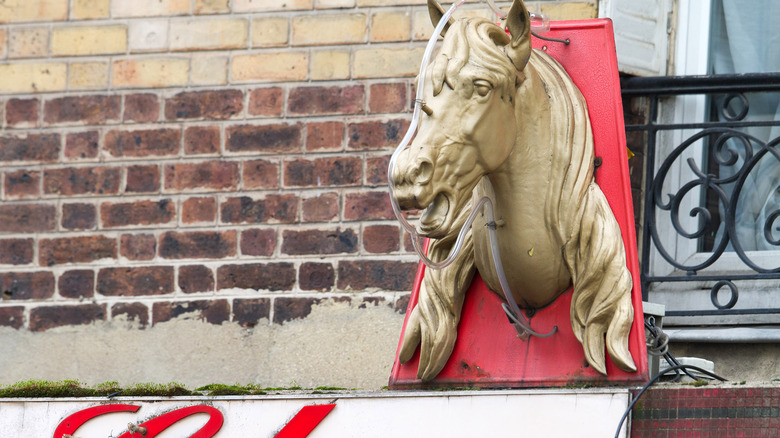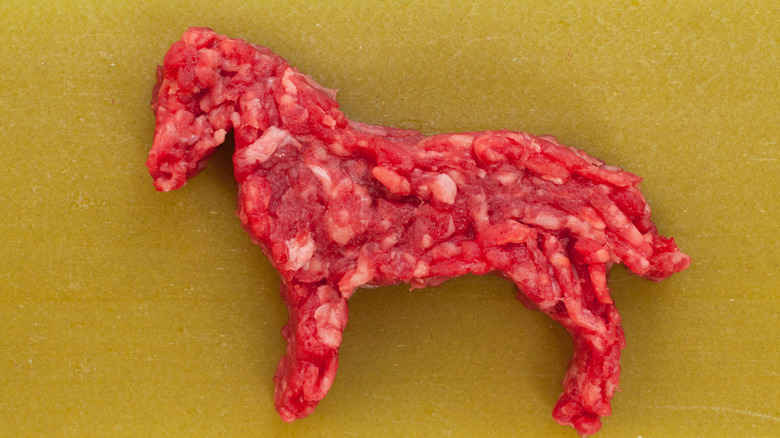How Eating Horse Meat Became Acceptable In France
Eating animals is common in most cultures — though the division between which animals we as humans don't think twice about eating and those who are considered man's best friend rather than breakfast may seem natural, the dividing lines drawn are actually quite arbitrary and complex. The reasons behind why cows and chickens were domesticated for consumption while cats and dogs are bred to be pets are due to a long history, as discussed on Gastropod's podcast episode "Why These Animals."
Horses, though not found on many Western menus today, have been consumed as meat throughout human history, from Kazakhstan to Britain, and were even served at the Harvard Faculty Club during World War II. Eating horse meat is still controversial today, but in Paris, one can still see the standing remains in the streets and signs of horse meat butcher shops. While religious reasons from the 8th century deterred the French from eating horse meat, political upheaval played a large role in normalizing horse meat consumption.
The 8th century Papal Edict
The origins of the horse meat eating taboo date back to the year 732, according to ABC. One representative from the Long Riders Academic Association stated that Pope Gregory III issued a decree against eating horse meat in response to Scandinavian pagan rituals of horse slaughter and sacrifice. This was the first food ban from the church, and the Pope went as far as to call eating horse meat "filthy and abominable."
As a result, while horse meat was integral to diets in Central Asia and continues to be consumed today (in the form of kazy, sausage made from horse meat, per Central Asia Travel), horse meat was banned and scarce in Europe. The New Republic reported that horses were prioritized for their work applications and the European landscape was better suited for cows and pigs. Hippophagy — the practice of eating horse flesh — would not become popular in France until the 19th century for political reasons.
The hippophagy revolution in France
Prior to the 1850s in France, horse meat was considered a low-quality meat, per Gastronomica. But then there was a large-scale campaign to promote and legalize horse meat consumption in 1866. Around that era, horses were prized pets of the well-off, who groomed and even gave names to their beloved animals, and writer Kari Weil suspects that the appetite for horse meat had to do with a resistance to the idea of status.
According to Reuters, the poorer classes couldn't afford pork and beef, and since horses were widely available at the time, perhaps eating the rich's horses may have been a step toward equality, especially only a few decades after the French Revolution. When the Prussian Siege of Paris occurred in 1870, a few years after the legalization of horse meat, more people ate horse meat (along with rat, donkey, and even elephant meat, per Atlas Obscura) as other options were short of stock.
The decline of horse meat eating
In 2013, a horsemeat scandal made shockwaves around the world when the Irish Food Safety Authority found horse DNA in cheap frozen beef (via The Guardian). After the discovery, more tests were made on beef products in the industry, and it was found that in products made for large distributors by a French company Comigel, some of the so-called beef was 100% horse.
At the time when Comigel was clandestinely manufacturing horse meat, however, French consumption of horse meat was already next to nil. Per one report by Reuters in 2009, a successful animal rights campaign reduced horse meat consumption to less than 1 percent of total meat consumed in the country — a stark percent from the 2 million pounds of horse meat consumed in 1879 (via Vice). While the general population no longer eats horse meat, a recent horsemeat traffickers scandal demonstrated that the appetite for horse meat is still alive and controversial.



